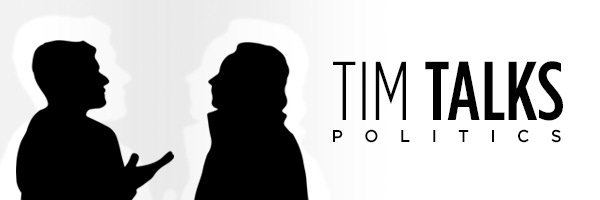Tim Talks Politics - The Weekly Brief, September 7, 2018

The Weekly Brief - September 7, 2018
It’s an All-American edition of the Weekly Brief to start September and to celebrate the start of the college football season (Go Irish!).
News and anonymity
The Beltway got rocked this week by an anonymous op-ed in the New York Times purporting to be written by a Trump admin official declaring the existence of a ‘resistance’ in the West Wing to constrain and control the President.
The piece made a massive splash and sent the news cycle into hyperdrive, never minding the fact that there was almost nothing unique in the op-ed from the anonymous source to the reiteration of the ‘adults in the room’.
Conservative critics of the piece in particular noted the nothingness of the piece while pointing out its damaging effect to the legitimacy of institutions while also entrenching support for Trump, which seems to be entirely counter productive to the op-ed’s intention.
The travails of Mark Zuckerberg
Big Tech heads were summoned to testify before Congress, again, this week on ongoing efforts to improve the digital public square. High profile misfires by Facebook on policing content on its newsfeed provided a less than optimal backdrop to the hearings.
Meanwhile, Pew Research published new data on the changing social media landscape, particularly in regards to Facebook’s falling stock, literal and figurative, with its users. The research findings suggest that while a lot of Facebook users don’t understand how the newsfeed works, concerns over privacy continue to increase, which is shaping user activity.
Kavanaugh hearings
If an anonymous op-ed wasn’t enough to light people’s hair on fair, the Senate Judiciary Committee took up hearings to appoint Brett Kavanaugh to the Supreme Court bench. Predictably, committee Democrats, along with noisome protesters, sought to prevent or at least delay hearings. Democratic senators were particularly concerned about the amount of released documents for review and the time provided to review them.
Lawfare takes a very good, objective look at the documents issue, noting that relevant documents have largely been released. Through all the craziness the apparent composure of Kavanaugh has come in for praise, while Senator Ben Sasse has positioned himself as the apparent adult in the midst of the chaos.
If it's not the wave, it’s the undertow
Boston saw another primary upset by a fresh faced Democratic challenger against a long serving Democratic incumbent leading many to wonder if there’s a wave within a wave happening this fall.
FiveThirtyEight parses the issue quite well by noting that the blue wave is looking better with each passing month, but that Ayanna Pressley’s win in Massachusetts is not nearly the upset Alexandria Ocasio-Cortez was in New York.
More notable, perhaps, is the purpling of congressional districts in Texas.
Where are the big ideas?
25 years ago, Samuel Huntington penned an essay that continues to reverberate through popular culture. That essay, which would become a book, introduced America to a big idea: The Clash of Civilizations. The idea has been debated, rehashed, and reworked for years, but it’s cultural impact in undeniable in the post-9/11 world.
This got me to thinking, “What are the big ideas shaping our political thought now?”
Politico must’ve been listening to the same wavelength because they published a fascinating issue this week on their Top 50. Fifty people and ideas that the editors believe are shaping our political conversations in the United States. From the people to the books they read, the ideas discussed in the issue run the gamut and should be looked at, from socialism in America to a retread of the Constitution.
The American future
Politico’s Top 50 issue attempts to anticipate America’s political future and so it may be helpful to consider what are some of the key trends and assumptions driving those predictions.
The Hoover Institute takes a look at the future of American identity from a historical perspective, and Pew Research reports on the future of America’s middle class - stable size, failing finances.
Providence Magazine zooms out to the philosophical level to consider whether or not America liberalism has a future as a credible philosophy. I argue in a new blog post that liberalism absolutely has a future, provided we can address it’s internal threats.
To wrap it all up, Bret Stephens at the New York Times wrote a really thoughtful piece this week on “keeping faith” with America in which he provides a timely reminder that American history has never been characterized by a lack of upheaval, but has and should continue to be characterized by its aspirational founding ideals.


